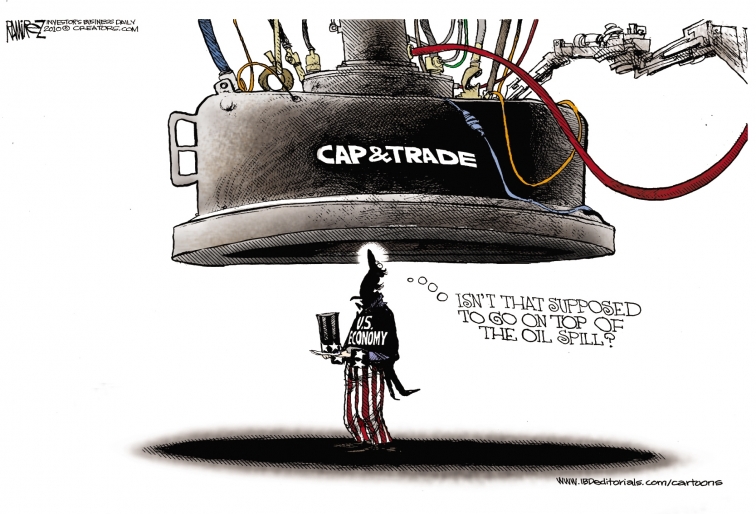Gulf Blowout Was Terrible Anomaly
Following up on my column today on the execrable Obama response to last year’s Gulf oil spill, it’s worth reading pieces in the New Orleans Times-Picayune today so as to remind us of certain realities. First, as the caption accompanying this editorial notes (and as has been reported numerous times), this disaster hardly came out of nowhere. Instead, workers and mid-level supervisors had been reporting problems on this particular well for weeks.
Both widows including Courtney Kemp, of Jonesville, La. told committee members that their husbands, Shane Roshto and Wyatt Kemp, had told them in the weeks before the explosion about problems they had in controlling the well. “This well was different in the fact that they were having so many problems, and so many things were happening, and it was just kind of out of hand,” said Kemp.
Other reports confirm that these truths:
The AP recently obtained documents showing that a BP drilling engineer who worked closely on the blown-out well kept quiet about his misgivings in the weeks leading up to the accident.
In an email message to his wife on March 11, 2010, Brian Morel said his team aboard the rig was “out of control.”
“I can’t take it, so I am staying away from the issues today,” he wrote.
A few weeks earlier, the company had reprimanded Morel in a performance evaluation, cautioning him to pick his battles and “learn when to push and when to concede.”
In other words, this was eminently preventable. Warning signs were missed. Decision-making was terrible. And BP had a reputation, at least in some quarters, for cutting corners on safety.
What this means is that the risks of something like this happening again are very, very slim. If it hasn’t happened for many decades, and then when it does happen it turns out to have been preventable, and if everybody is now on the lookout for signs of trouble, and if new safety equipment and well-capping equipment has been developed and are ready at hand… well, then, it stands to reason that all other would-be drillers, and all the businesses and individuals who depend on the wells for their livelihoods, should not be punished by a “permitorium” on offshore drilling. Nor should American consumers nationwide, who are seeing energy prices (especially prices at the pump) rise to near-record levels.
Meanwhile, the T-P’s Bob Marshall (who was my boss nearly a quarter-century ago) updates us all on the continuing efforts to analyze the long-term ecological damages from the spill. This is crucial work. Conservatives rightly skeptical of EPA overreach on matters large and small, and property owners justly angry at the federal government’s assault on private property in the name of protecting “wetlands” that are no more than “prairie potholes,” sometimes forget that some ecological causes are indeed important. I have always argued that the most important of those are the health of the oceans and seas and the fisheries within them, which also means protecting the coastal eco-systems (actual wetlands/marshlands) that serve as the nurseries for those fisheries. Hunters and fishermen, innately conservative on so many levels, understand these things.
The trick to protecting these precious resources held in common is not to regulate people half to death, but to provide incentives for (or remove disincentives from) proper husbandry of the wetlands and seas. Government wetlands replenishment projects, to make up for the effects of government levee-building and canal-dredging, also are appropriate in some places — and they are less expensive than are disaster-relief costs to make up for damages caused by hurricanes whose effects would be far less fierce if healthy wetlands were still available to absorb some of the rising floodwaters and otherwise cushion the blow.
Nobody really needs a heavy hand from government; heavy hands too often come down with the force of a Rocky Marciano clenched fist. What is needed is a government that is responsive and smart, one which reacts quickly (Obama’s administration did not) but that does not overreact in ways that further punish the victims (which is what Obama did).
Future blowouts can be prevented without killing the regional or national economies. Again, the BP disaster was an anomaly. As my colleague Renee Giachino said on this site last week, the whole airline industry isn’t closed down when one plane crashes. Why should energy exploration be treated any differently?








 CFIF Freedom Line Blog RSS Feed
CFIF Freedom Line Blog RSS Feed CFIF on Twitter
CFIF on Twitter CFIF on YouTube
CFIF on YouTube